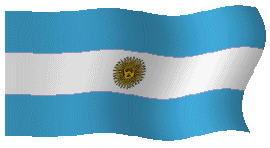
B"H
Jewish  Tours
Tours
 Buenos Aires, Argentina
Buenos Aires, Argentina
ARGENTINA, South American Federal Republic, general population (2004) 39,150,000; Jewish population 190,000.
The Cabildo Abierto, whose convention in Buenos Aires on May 25, 1810, marked the beginning of Argentinean independence, did not abolish colonial legislation condemning non-Catholics to religious persecution. A circular of Dec. 3, 1810, signed by Mariano Moreno, secretary of the Junta de Mayo, extended an invitation to "British, Portuguese, and others not at war with us," while Bernardino Rivadavia's decree of Dec. 4, 1812, established freedom of immigration to Argentina for all nations, ensuring that their basic human rights were preserved. The Inquisition, however, was officially abolished only on March 24, 1813. On May 7, 1813, the Constitutional Assembly decided that foreigners would not be prevented from observing their religious rites if these were performed by individuals in their own homes. Following an 1825 agreement between the governments of Argentina and Great Britain, the Buenos Aires province extended religious freedom to all Protestants.
All these agreements, like that concerning non-Catholic wedding ceremonies promulgated in 1833, failed to take Jews into account. Only in the Constitution of 1853 did clauses appear which created the legal basis for Jewish life in Argentina. Complete religious freedom for all residents of Argentina, both nationals and foreign residents, was specifically laid down in paragraphs 14 and 20 of the constitution and is hinted at in paragraph 19. However, the legislation determines that the government must support Roman Catholic worship and decrees that the president and his deputy must be Roman Catholics (paragraphs 2, 76).
This constitution was passed as a result of pressure applied by liberal elements in the legislative assembly, who remained dominant in subsequent years. In 1876 they legislated a liberal immigration law, No. 817, which allowed immigration also to non-Catholics. During the 1880s, liberal politicians even created a conflict between the Argentinean government and the Catholic Church. Education Law No. 1420 of 1884 stipulated the secularization of official education, and that religious instruction in schools was to be given only before or after school hours and by clerics ordained by the various religious bodies and only to children of their respective faiths. This law, intended to eradicate church influence in state schools, naturally aroused opposition in conservative circles. In the same year another law, No. 1565, established the Registro Civil, requiring all citizens to register their civil status with the government, depriving the clergy of the sole right to register births, marriages, and deaths. When the Vatican representative intervened in the resulting controversy, Julio A. Roca's government severed relations with the Vatican, and these were resumed only in 1900.
This secular legislation was completed with the Civil Marriage Law of 1888. The liberal legislation naturally secured the legal status of non-Catholics, including Jews, and abolished all possible discrimination based on laws of civil status. Its importance diminished in the course of time, as conservative and nationalist elements ignored the liberal ideology that had promulgated the Argentinean constitution; but the religious freedom determined by the 1853 constitution was not abolished.
[Haim Avni]
|
Visite nuestro sitio/Visit our home page: |